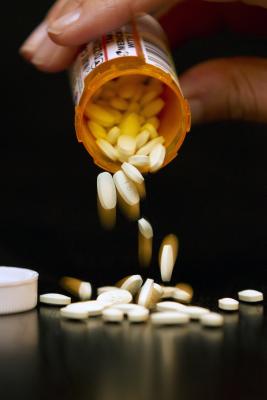
September 4, 2018 — The jury is still out on whether people at moderate risk of a first heart attack or stroke should take daily aspirin to lower their risk, according to late-breaking results from the ARRIVE study. Results from ARRIVE (Aspirin to Reduce Risk of Initial Vascular Events) were presented in a Hot Line Session at the European Society of Cardiology (ESC) Congress 2018, Aug. 25-28 in Munich, Germany, with simultaneous publication in The Lancet.1
Prof. J. Michael Gaziano, M.D., MPH, principal investigator, of the Brigham and Women's Hospital, Boston, said, “Aspirin did not reduce the occurrence of major cardiovascular events in this study. However, there were fewer events than expected, suggesting that this was, in fact, a low-risk population. This may have been because some participants were taking medications to lower blood pressure and lipids, which protected them from disease.”
The benefit of aspirin for preventing second events in patients with a previous heart attack or stroke is well established.2 Its use for preventing first events is controversial, with conflicting results in previous studies and recommendations for and against its use in international guidelines. Recommendations against its use cite the increased risk of major bleeding.2
The ARRIVE study assessed the impact of daily aspirin on heart attacks, strokes and bleeding in a population at moderate risk of a first cardiovascular event. Moderate risk was defined as a 20–30 percent risk of a cardiovascular event in 10 years. The study enrolled individuals with no prior history of a vascular event, such as stroke or heart attack. Men were at least 55 years old and had two to four cardiovascular risk factors, while women were at least 60 years old with three or more risk factors. Risk factors included smoking, elevated lipids and high blood pressure.
A total of 12,546 participants were enrolled from primary care settings in the U.K., Poland, Germany, Italy, Ireland, Spain and the U.S. Participants were randomly allocated to receive a 100 mg enteric-coated aspirin tablet daily or placebo. The median follow-up was 60 months. The primary endpoint was time to first occurrence of a composite of cardiovascular death, myocardial infarction, unstable angina, stroke and transient ischaemic attack.
The average age of participants was 63.9 years and 29.7 percent were female. In the intention-to-treat analysis, which examines events according to the allocated treatment, the primary endpoint occurred in 269 (4.29 percent) individuals in the aspirin group versus 281 (4.48 percent) in the placebo group (hazard ratio [HR] 0.96, 95 percent confidence interval [CI] 0.81–1.13, p=0.60). In the per-protocol analysis, which assesses events only in a compliant subset of the study population, the primary endpoint occurred in 129 (3.4 percent) participants of the aspirin group versus 164 (4.19 percent) in the placebo group (HR 0.81, 95 percent CI 0.64–1.02, p=0.0756).
In the per-protocol analysis, aspirin reduced the risk of total and nonfatal myocardial infarction (HR 0.53, 95 percent CI 0.36–0.79, p=0.0014; HR 0.55, 95 percent CI 0.36–0.84, p=0.0056, respectively). The relative risk reduction of myocardial infarction in the aspirin group was 82.1 percent, and 54.3 percent in the 50–59 and 59–69 age groups, respectively.
All safety analyses were conducted according to intention-to-treat. Gastrointestinal bleedings, which were mostly mild, occurred in 61 (0.97 percent) individuals in the aspirin group versus 29 (0.46 percent) in the placebo group (HR 2.11, 95 percent CI 1.36–3.28, p=0.0007). The overall incidence of adverse events was similar between treatment groups. Drug-related adverse events were more frequent in the aspirin (16.75 percent) compared to placebo (13.54 percent) group (p<0.0001), the most common being indigestion, nosebleeds, gastro-oesophageal reflux disease and upper abdominal pain.
Gaziano said, “Participants who took aspirin tended to have fewer heart attacks, particularly those aged 50–59 years, but there was no effect on stroke. As expected, rates of gastrointestinal bleeding and some other minor bleedings were higher in the aspirin group, but there was no difference in fatal bleeding events between groups.”
He concluded, “The decision on whether to use aspirin for protection against cardiovascular disease should be made in consultation with a doctor, considering all the potential risks and benefits.”
For more information: www.escardio.org
References


 November 12, 2025
November 12, 2025 









